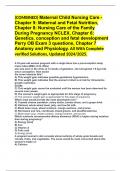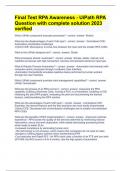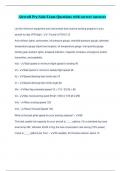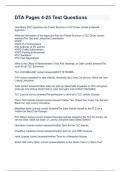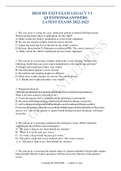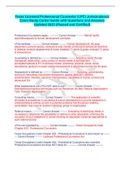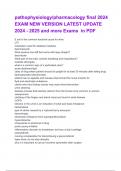Exam (elaborations)
(COMBINED) Maternal Child Nursing Care - Chapter 9: Maternal and Fetal Nutrition, Chapter 8: Nursing Care of the Family During Pregnancy NCLEX, Chapter 6: Genetics, conception and fetal development Perry OB Exam 3 questions, Chapter 7 Anatomy and Physiolo
- Course
- Institution
(COMBINED) Maternal Child Nursing Care - Chapter 9: Maternal and Fetal Nutrition, Chapter 8: Nursing Care of the Family During Pregnancy NCLEX, Chapter 6: Genetics, conception and fetal development Perry OB Exam 3 questions, Chapter 7 Anatomy and Physiology. All With Complete verified Solutions, Up...
[Show more]
